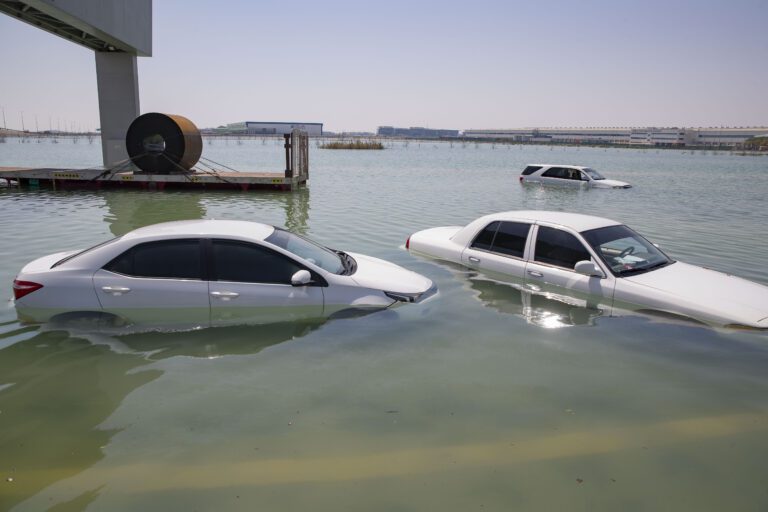In the UAE, the recent heavy rains have led to concerns about flood-damaged vehicles entering the market. To avoid purchasing such cars, buyers should take proactive steps.
Seek 360-degree health check-ups from reputable service centers. These inspections, typically costing around Dh150, can reveal if a car has flood damage. Buying from authorized and credible distributors can also ensure the vehicle’s integrity. Carlos Montenegro from Al-Futtaim Automotive emphasizes purchasing from trusted sources to avoid flood-damaged vehicles.
Sebastian Fuchs from Auto Data Middle East recommends pre-purchase inspections to detect any hidden damages. He advises buyers to use vehicle history tools and 120-point checks, which cost approximately Dh149. Fuchs also highlights an increased demand for both large SUVs and budget-friendly models post-flood, driven by insurance payouts and a need for reliable vehicles.
When inspecting a car, check seat belts for watermarks or dampness, inspect areas like the steering column and seat rails for rust, and ensure all instrument panel lights work correctly. Look for watermarks inside external lights and a musty smell inside the vehicle. Check carpets, seats, and the trunk for watermarks, and ensure all electrical components function properly during a test drive.
By following these guidelines, UAE car buyers can avoid the pitfalls of purchasing flood-damaged vehicles and ensure their investments are sound.


